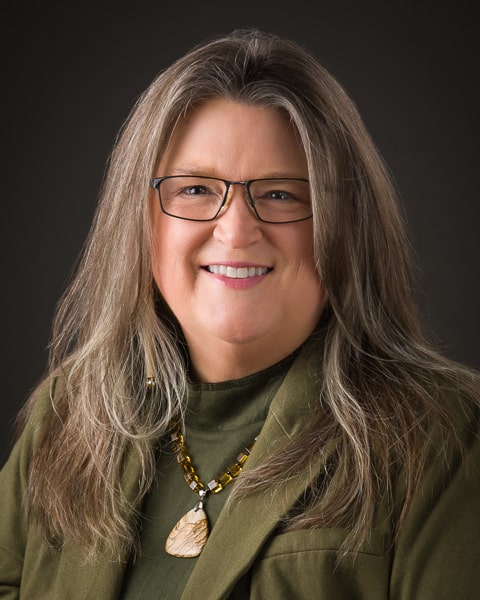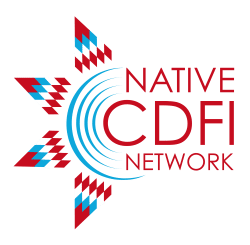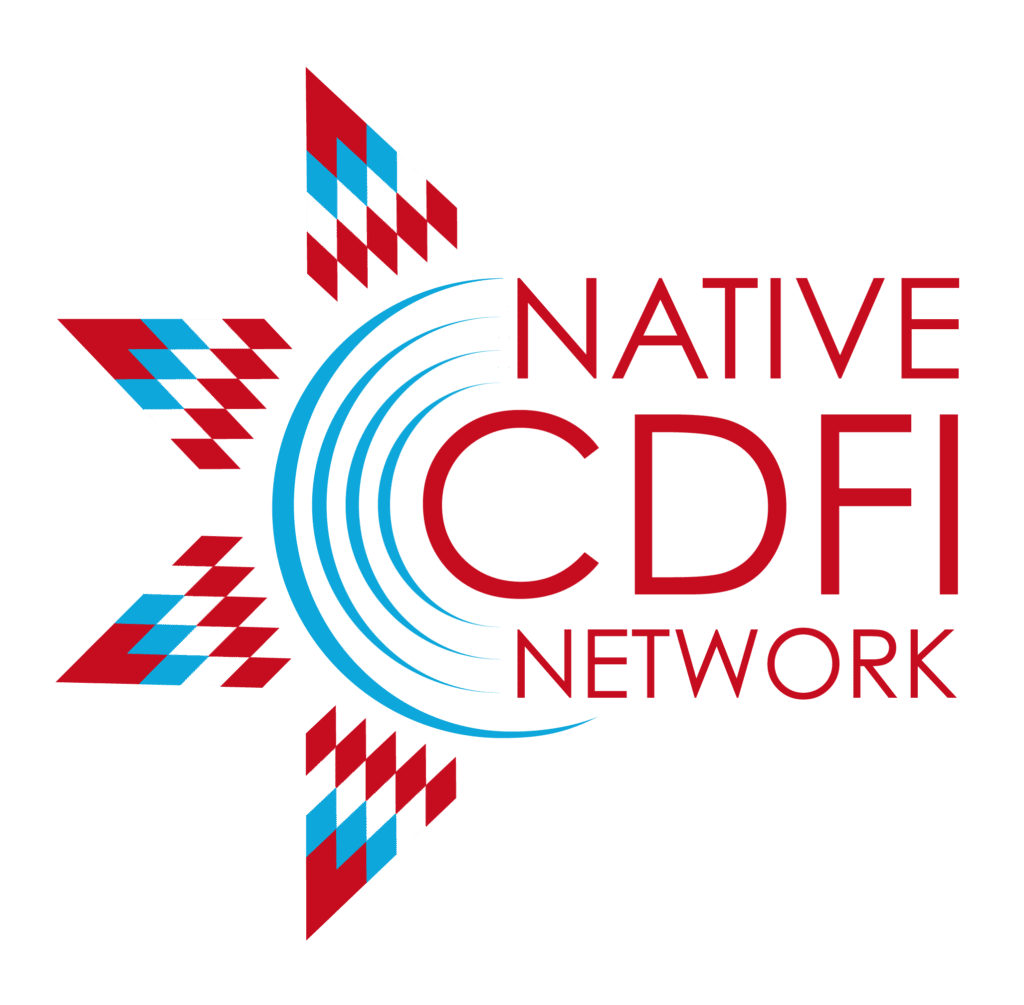
In this latest edition of “Difference Makers,” NCN sits down with Nancy Jordan, who serves as Interim Executive Director of Lummi CDFI (LCDFI), a certified Native CDFI based in Bellingham, Washington. Launched as a state chartered non-profit entity fiscally sponsored by Lummi Indian Business Council (LIBC) in 2006, LCDFI was certified by the U.S. Department of the Treasury as a CDFI in 2008 and Community Development Entity in 2017. LCDFI was established to address the local community’s significant needs for access to capital for Native-owned small businesses, and for Native individuals and families to establish and build credit and financial wellness based on traditional, cultural, and community values. LCDFI obtained IRS designation as a 501c3 non-profit in 2012 and officially separated from the tribe as a stand-alone entity in 2017.
In addition to serving as Interim Executive Director, Nancy serves Lummi CDFI as its Capacity Developer and Success Coach. Her past professional roles include manager and agricultural commercial lender/appraiser and economic development non-profit executive. As the former Executive Director of the Whatcom County Economic Development Council, Nancy sat on LCDFI Board of Directors from 2007-2010. In 2010, she accepted the position of Executive Director of Lummi Nation Service Organization (LNSO) and Ventures Partnership, the non-profit arm of LIBC and fiscal sponsor of LCDFI. She obtained an undergraduate degree in Animal Science/Business and a master’s degree in Community Development Policy & Practice from the University of New Hampshire’s Carsey School. She also is co-owner of her family’s small business, Sound Wise Studios, Inc.
In this insightful conversation with NCN, Nancy shares how LCDFI advances Lummi Nation’s vision of prosperity.
NCN: Greetings Nancy, it’s good to have you with us today. Welcome.
Jordan: Thank you. I appreciate you for reaching out and doing this series.
NCN: So why do you do what you do? How and why did you come to lead Lummi CDFI?
Jordan: A couple things come to mind when you ask that question. Part of it is I grew up on a farm in a rural community. I come from a family that had its own challenges and some family members who had limitations. My mom was the country nurse, so she would bring me with her to the community members who needed medical support. From those experiences, I really understood what a community was about. It was that whoever we were, we brought what we had to offer to help the community function. It took all of us.
Then, after college, I went into agricultural commercial lending with the farm credit system and saw that the mainstream lending system fit a certain kind of population, but there were a lot of communities that got missed. With that knowledge, I moved into community and economic development, where I got to see the systems that really don’t offer access to all types of people who are trying to improve themselves or find financial security. Those gaps were what drew me into this work.
NCN: There currently are 64 federally certified Native CDFIs across the country and many more “emerging” CDFIs following in their footsteps. Why did and do Native communities and organizations feel it necessary to create CDFIs, and what fundamental role do they play?
Jordan: For Lummi Nation, it was understanding the path out of poverty and into prosperity needed to include access to “capital that understands the community it serves.” In the early 2000s, the Lummi Development Authority, a department of Lummi Indian Business Council, launched a project that was the foundation for Lummi CDFI. LIBC provided initial funding for the originating loans. LIBC then fiscally sponsored LCDFI through Lummi Nation Service Organization as the organization moved through the ups and downs of getting established.
“Native CDFIs fill a unique need that not only can build a community in economic ways, but because this work is grounded in values of community, family, and culture, it brings an awareness of our humanity and how a community – the whole community – functions.”
NCN: What do policymakers, philanthropy, banking institutions, and the general public who aren’t familiar with Native CDFIs need to understand about them and the difference they make?
Jordan: Native CDFIs fill a unique need that not only can build a community in economic ways, but because this work is grounded in values of community, family, and culture, it brings an awareness of our humanity and how a community – the whole community – functions.
In other words, many of this country’s one-size-fits-all systems cannot reach or fulfill the needs of everyone. For example, the realization that broadband infrastructure is not accessible universally is just now becoming known in mainstream conversations. The idea of “food deserts” is hitting urban areas when a local Albertson’s store closes. Native communities have disproportionally been left out of fundamental infrastructure and services from day one. The result for tribal communities is an unimaginable burden and an up-hill process. Often, the general public assumes these things should be easy and/or already available for all.

NCN: So let’s turn to Lummi CDFI. Your organization’s vision is, and I quote, “to create a vibrant, resilient economy supporting our community’s spiritual and economic wellbeing.” How does LCDFI advance this vision in the work it does day in and day out?
Jordan: Our team really benefited from the work the Lummi Nation and community did in the early 2000s, where the Ventures project listened deeply to the community and had it bring forward ideas for to how to address the root causes of poverty and create avenues of prosperity. Over 1,500 people participated over 18 months of listening, from large groups to individuals to even those who were homeless. They wanted to hear from everyone. From that whole process, Lummi Nation created the Ventures Strategies for Prosperity, which guides everything we do. In these Strategies, which we call the “Butterfly Book,” is a definition of poverty and prosperity: “Poverty is when one, some, or all of our values are missing that make a fully functional individual, family or community…Prosperity is living our lives according to Lummi values.”
NCN: As part of its work to cultivate Lummi prosperity, LCDFI offers its Individual Development Account (IDA) Pilot Program to clients, which is a matched savings account initiative. Why does LCDFI offer this program, how does it work, and what sort of commitment does it require of participants?
Jordan: Our work with our clients has shown us that their financial needs often are not just about getting a loan. Adding this Individual Development Account “savings tool” to our financial products creates an alternative path toward wellbeing for community members who may not need a loan.
Our IDA is a matched savings program where someone sets a goal, such as an entrepreneur wanting to purchase the next piece of equipment or gear for their business. Or maybe it’s a homeowner who wants to replace the flooring in their home. The person says, “I want to save $3,000 because that’s what the project will cost.” They make a commitment over six to 24 months to put funds away each month into a custodial/joint bank account. They commit to training or skills building depending on their interest or need, and make monthly payments as agreed. Once they reach their goal and all tasks are complete, LCDFI releases the matching funds, so their equipment or gear is purchased, which in our project is two-to-one – $2 for every $1 they saved up to a certain limit.
This also is a good tool for those that might need support in setting up a budget or have an accountability partner to achieve a goal. It also reminds people that putting a few dollars away for a rainy day can create options and opportunities. The IDA program encourages that concept of saving and putting things away until you reach a goal, and then not only do you achieve that goal, but you’ve created a new habit.
NCN: You are one of three “Success Coaches” on LCDFI’s staff. Can you explain the purpose of this role, why it is important, and how it benefits the clients you serve?
Jordan: The purpose of this role – which is provided by every one of us, from our Board and Loan Committee members to all of our staff – is to be a trusted and confidential resource of support for those who reach out to us. Our job is to be engaged with and accessible to the community. We need to be known and familiar. Every one of us brings a different skill set. We’ve had experiences and background in different places and have different things we can bring to the table with each client. We have everyone from fishermen to financial experts who serve in this role.
Sometimes, a client needs business planning and preparing for a business loan. How do you put your financials together to create a successful loan application? Other times, it could be how do I explore this idea I have for a business? Or it might be support for a nonprofit that’s looking to form.

Lummi CDFI client Cideahzia Barnes, owner of The Sanctuary Salon (Courtesy: Mark Turner / Turner Photographics)
NCN: Lummi CDFI has helped a significant number of Native people over the past 15-plus years. Is there a particular client success story that really inspires you that you wish to share?
Jordan: Yes, there are many. I’ll first mention the many fishermen and women we have worked with over the years, as Lummi Nation has the largest Native fishing fleet in the Salish Sea (Puget Sound). But today I’ll highlight Cideahzia Barnes, owner of The Sanctuary Salon. She has taken her passions and skills as an esthetician from being a beautician in someone else’s shop to having three spaces in the Lummi Te’Ti’Sen Center’s Native small business incubator. She has grown, small step by small step, to where she is able to provide for her family – on her own terms. She has another esthetician working with her in her salon. She is a great example of tenacity.
NCN: From your perspective, what do Native CDFIs like Lummi CDFI need to realize their full potential? What types of support do they need to achieve their missions and maximize their impact?
Jordan: Of course, the ongoing support from our partners, who understand and join in the work of creating community- and values-based access to capital, is critical. We thank them every day. Going forward, having more of these trusted and patient partners will help us gather the resources that can meet the growing demand in the communities we serve.
In the bigger picture, having more opportunities like these interviews that help address the assumptions and perceptions that many of us live by is important. We all know that our history includes a whole lot more than what we have been taught or shown in schools. Being able to “see” each other and bring forth the inherent wisdom and values of Native communities will help our understanding of each other. Many of us – including some in the philanthropic world – need to unlearn some assumptions about Native communities, and they need to have the patience and humility to engage meaningfully in that process.
To learn more about Lummi CDFI, please click here.

